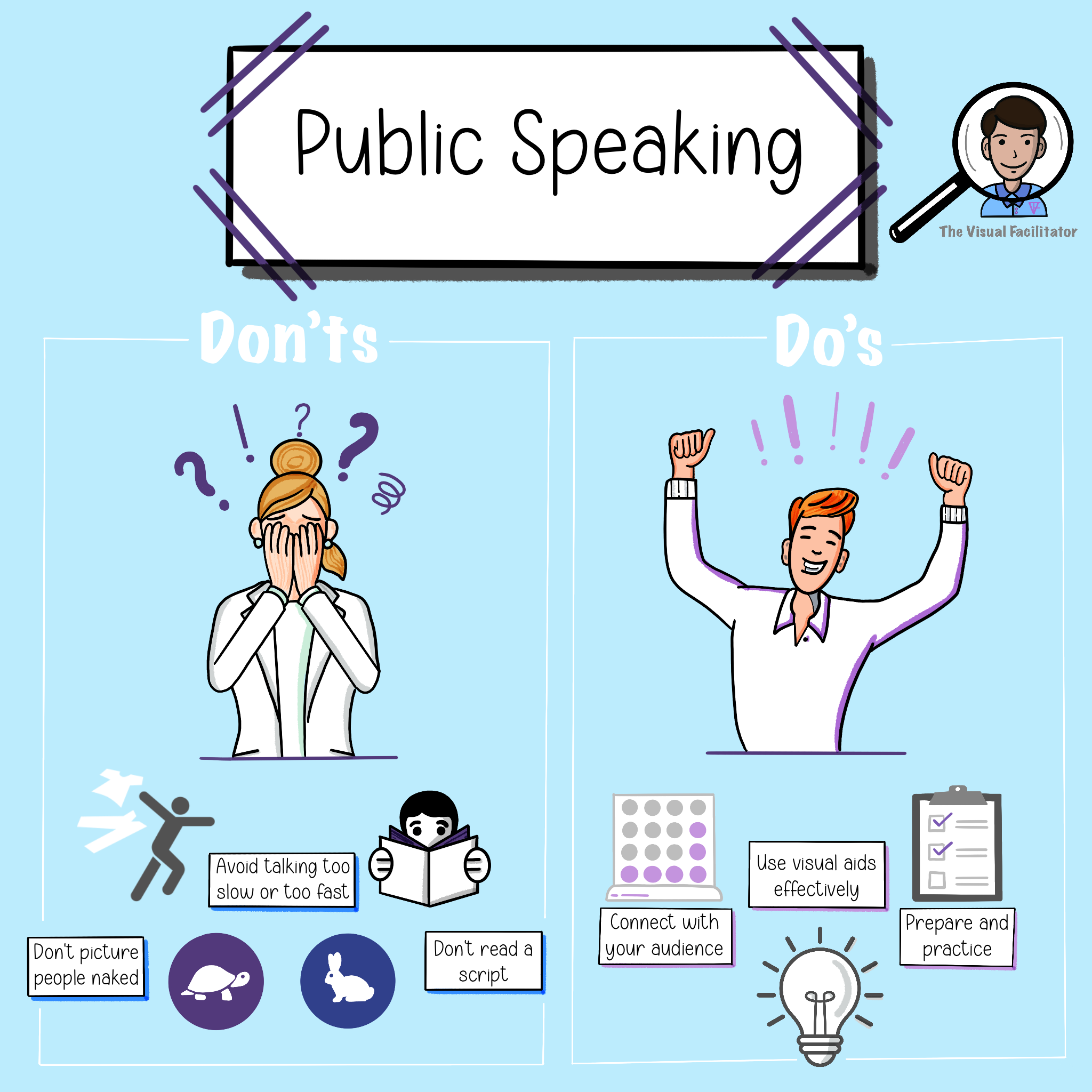Mastering the Art of Public Speaking: Tips and Tricks for Success
Public speaking can be a nerve-wracking experience for many people. However, with the right tips and tricks, you can transform yourself into a confident and captivating speaker. Whether you're presenting in front of a large audience or speaking in a professional setting, these do's and don'ts will help you deliver a memorable and impactful speech. So, let's dive into the key elements that can make you a successful public speaker.
Do Connect with Your Audience:
One of the most important aspects of public speaking is building a connection with your audience. Begin by researching and understanding their interests, needs, and preferences. During your speech, make eye contact, use inclusive language, and try to relate to their experiences. Engage your listeners through storytelling, personal anecdotes, or interactive elements. Remember, a strong connection with your audience will enhance their engagement and make your speech more impactful.
Do Prepare and Practice:
Effective public speaking requires thorough preparation and practice. Start by defining your key message and structuring your speech around it. Organize your content in a logical sequence, including an attention-grabbing introduction, main points, and a compelling conclusion. Rehearse your speech multiple times to build confidence, improve your delivery, and ensure smooth transitions between ideas. Practice in front of a mirror or record yourself to identify areas for improvement.
Do Use Visual Aids Effectively:
Visual aids can enhance your presentation and help convey your message more effectively. Choose visuals that are relevant, visually appealing, and easy to understand. Whether it's slides, charts, or props, keep them simple, uncluttered, and visually engaging. Use visuals to support your key points, emphasise important information, or create visual metaphors. However, remember that visual aids are meant to enhance your speech, not overshadow it. Maintain a balance between verbal communication and visual support.
Don't Picture Your Audience Naked:
The advice to picture your audience naked is a well-known myth. Instead of calming your nerves, it can distract you and undermine your focus. Rather than imagining your audience in a vulnerable state, focus on connecting with them, understanding their needs, and delivering a valuable message. Shift your attention to the content of your speech, the engagement with your audience, and the impact you want to create. Remember, confidence comes from within and is built through preparation and practice.
Don't Read from a Script:
Reading from a script can make your speech sound monotonous and detached. Instead, aim to speak naturally and connect with your audience. Practice your speech until you're comfortable enough to rely on notes or key bullet points. Familiarize yourself with the content, allowing room for improvisation and adapting to the audience's reactions. Engage with your listeners by maintaining eye contact and using appropriate gestures. Your authenticity and passion will captivate your audience far more effectively than a robotic delivery.
Don't Speak Too Fast or Too Slow:
Pace and rhythm are crucial in public speaking. Speaking too fast can leave your audience struggling to keep up, while speaking too slowly can lead to disengagement. Aim for a moderate pace that allows your audience to absorb and process your message effectively. Vary your speed to emphasise key points, add suspense, or create a sense of urgency. Pay attention to your audience's reactions and adjust your pace accordingly.
Conclusion:
Public speaking is a skill that can be developed with practice and attention to detail. By connecting with your audience, preparing diligently, and using visual aids effectively, you can deliver engaging and impactful speeches. Remember to avoid distractions like picturing your audience naked, reading from a script, or speaking too fast or too slow. Embrace these tips and tricks, and watch your confidence soar as you become a master of public speaking. With each presentation, you'll gain valuable experience and refine your skills, setting yourself up for success in any speaking opportunity that comes your way.

